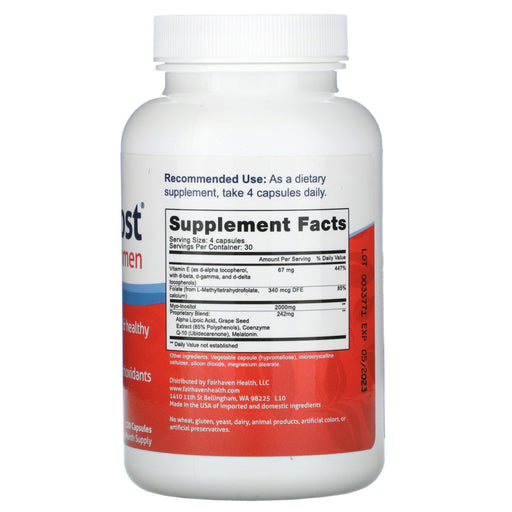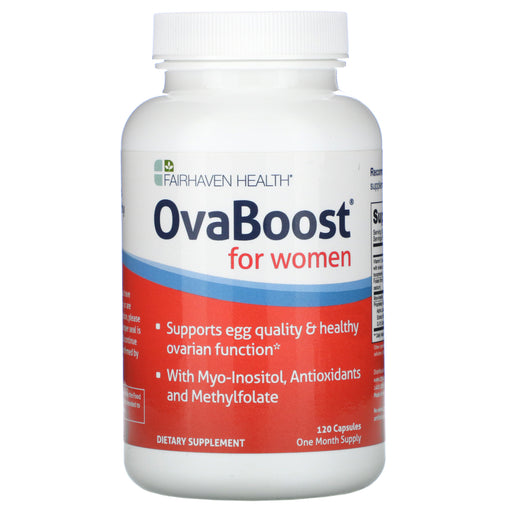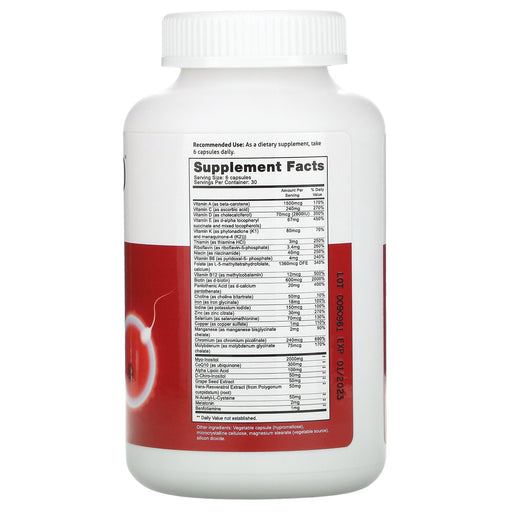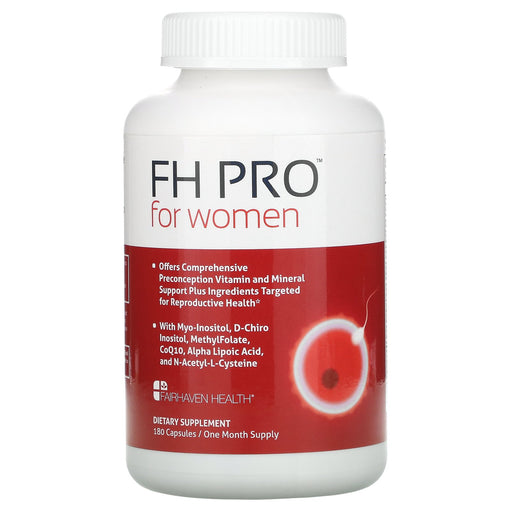
Supporting Maternal Health and Well-Being: A Holistic Guide for Moms & Maternity
The journey of motherhood is a transformative and deeply personal experience that encompasses profound physical, emotional, and mental changes. From preconception and pregnancy to postpartum and beyond, supporting maternal health and well-being is essential for both mother and child. By adopting a holistic approach that addresses nutrition, stress management, and self-care, mothers can cultivate a strong foundation for a healthy, happy journey through parenthood.
Key Aspects of Maternal Health and Well-Being
A comprehensive approach to maternal health and well-being should address several key aspects that contribute to overall physical, emotional, and mental wellness. These aspects include:
- Preconception Health: Preparing the body for pregnancy through proper nutrition, exercise, stress management, and lifestyle habits can help to optimize fertility, reduce the risk of complications, and support a healthy pregnancy.
- Prenatal Nutrition: Consuming a balanced, nutrient-dense diet that includes essential vitamins and minerals, such as folic acid, iron, and calcium, is crucial for supporting fetal development and maternal health throughout pregnancy.
- Stress Management: Pregnancy and motherhood can be emotionally and mentally challenging, making stress management techniques, such as deep breathing, meditation, and prenatal yoga, essential for promoting emotional well-being and resilience.
- Physical Activity: Engaging in regular, appropriate exercise during pregnancy and postpartum can help to alleviate discomfort, improve mood, and support a healthy recovery after childbirth.
- Postpartum Recovery: Prioritizing rest, nutrition, and self-care during the postpartum period is essential for promoting physical healing, emotional well-being, and a successful transition into motherhood.
Essential Nutrients for Maternal Health
Proper nutrition is the foundation of optimal maternal health and fetal development. Some of the most important nutrients for supporting mothers and babies throughout pregnancy and beyond include:
- Folic Acid: This B-vitamin is crucial for preventing neural tube defects and supporting healthy fetal brain and spinal cord development, making it an essential nutrient before and during early pregnancy.
- Iron: Adequate iron intake is necessary for preventing anemia, supporting healthy oxygen transport to the fetus, and promoting maternal energy and well-being throughout pregnancy.
- Calcium: This essential mineral supports the development of strong bones and teeth in the growing fetus, while also helping to maintain maternal bone health during pregnancy and lactation.
- Omega-3 Fatty Acids: These healthy fats, particularly DHA, are important for fetal brain and eye development, as well as for supporting maternal mental health and reducing the risk of postpartum depression.
- Vitamin D: This vital nutrient supports calcium absorption, bone health, and immune function in both mother and baby, making it an essential component of a prenatal nutrition plan.
Choosing the Right Supplements for Maternal Health
While a balanced, nutrient-dense diet should always be the foundation of maternal nutrition, supplements can help to fill nutritional gaps and ensure optimal intake of essential vitamins and minerals. When selecting supplements for maternal health, consider the following factors:
- Prenatal Multivitamins: Choose a comprehensive prenatal multivitamin that contains key nutrients like folic acid, iron, calcium, and vitamin D in appropriate doses for pregnancy.
- Quality and Purity: Opt for supplements that are manufactured in GMP-certified facilities and undergo rigorous testing for purity, potency, and safety.
- Specific Health Concerns: Consider supplements that address specific maternal health concerns, such as morning sickness, digestive discomfort, or postpartum recovery, under the guidance of a healthcare professional.
- Professional Recommendations: Consult with your obstetrician, midwife, or a qualified prenatal nutritionist to determine the most appropriate supplement regimen for your individual needs and health status.
Holistic Strategies for Maternal Well-Being
In addition to proper nutrition and supplementation, incorporating holistic strategies for stress management, physical activity, and self-care can greatly enhance maternal well-being and resilience. Some effective strategies include:
- Mindfulness and Meditation: Practicing mindfulness techniques, such as deep breathing, meditation, or prenatal yoga, can help to reduce stress, promote relaxation, and cultivate a positive mindset during pregnancy and motherhood.
- Prenatal Exercise: Engaging in safe, appropriate physical activity during pregnancy, such as walking, swimming, or prenatal fitness classes, can help to alleviate discomfort, improve mood, and prepare the body for labor and delivery.
- Social Support: Building a strong network of support through prenatal classes, mothers' groups, or online communities can provide valuable emotional support, practical advice, and a sense of connection during the journey of motherhood.
- Postpartum Self-Care: Prioritizing self-care activities, such as rest, healthy eating, and gentle exercise, during the postpartum period can promote physical recovery, emotional well-being, and a smoother transition into the demands of parenting.
Empowering Your Journey Through Motherhood
At Health Orchard, we understand the unique challenges and joys of motherhood and are dedicated to providing the highest quality products and resources to support maternal health and well-being. Our carefully curated selection of prenatal vitamins, supplements, and wellness products is designed to nourish and empower mothers at every stage of their journey.
Whether you are preparing for pregnancy, navigating the transformative experience of childbirth, or embracing the rewards and challenges of postpartum life, our Moms & Maternity collection offers a range of solutions to support your physical, emotional, and mental well-being.
Witness the power of holistic maternal care and experience the difference that targeted nutrition, mindful stress management, and self-care can make in your journey through motherhood. Explore our Moms & Maternity resources and products today, and take the first step towards cultivating a strong, healthy foundation for yourself and your growing family.
Frequently Asked Questions about Moms & Maternity
1. What is the best supplement for pregnancy?
The best supplement for pregnancy is a comprehensive prenatal vitamin that contains essential nutrients to support maternal health and fetal development. A high-quality prenatal vitamin should include:
- Folic acid: Helps prevent neural tube defects and supports healthy fetal growth
- Iron: Supports the increased blood volume during pregnancy and helps prevent anemia
- Calcium: Aids in the development of the baby's bones and teeth, and supports maternal bone health
- Vitamin D: Helps the body absorb calcium and supports immune function
- Omega-3 fatty acids (DHA and EPA): Support fetal brain and eye development
Additionally, some women may benefit from specific supplements based on their individual needs, such as vitamin B12 for vegetarians or vegans, or magnesium for muscle cramps. Consulting with a healthcare professional can help determine the best prenatal supplement for your specific needs.
2. Do supplements help with pregnancy?
Yes, supplements can be beneficial during pregnancy to help ensure that both the mother and the developing fetus receive adequate nutrition. Prenatal vitamins are specifically formulated to meet the increased nutritional demands of pregnancy and support healthy fetal development. They can help:
- Fill nutritional gaps in the diet
- Prevent nutrient deficiencies that may harm fetal growth and development
- Support maternal health and well-being
- Reduce the risk of certain birth defects, such as neural tube defects
However, supplements should not be relied upon as a sole source of nutrition, and a balanced, nutrient-rich diet is still essential. It's important to consult with a healthcare professional to determine which supplements are appropriate for your individual needs and to ensure they are safe for use during pregnancy.
3. What are the best foods and supplements for pregnancy?
The best foods and supplements for pregnancy are those that provide a wide range of essential nutrients to support maternal health and fetal development. Some key components of a healthy pregnancy diet and supplement regimen include:
- Nutrient-dense foods: Fruits, vegetables, whole grains, lean proteins, and healthy fats
- Folic acid: Helps prevent neural tube defects and supports fetal growth
- Iron: Supports increased blood volume and helps prevent anemia
- Calcium: Aids in the development of the baby's bones and teeth, and supports maternal bone health
- Vitamin D: Helps the body absorb calcium and supports immune function
- Omega-3 fatty acids (DHA and EPA): Support fetal brain and eye development
- Prenatal vitamin: A comprehensive supplement that contains essential vitamins and minerals
Consulting with a healthcare professional can help ensure that your diet and supplement regimen are tailored to your specific needs during pregnancy.
4. What is the best prenatal vitamin to take while pregnant?
The best prenatal vitamin to take while pregnant is one that contains a comprehensive blend of essential nutrients to support maternal health and fetal development. A high-quality prenatal vitamin should include:
- Folic acid (400-800 mcg): Helps prevent neural tube defects and supports fetal growth
- Iron (27-30 mg): Supports increased blood volume and helps prevent anemia
- Calcium (200-300 mg): Aids in the development of the baby's bones and teeth, and supports maternal bone health
- Vitamin D (400-600 IU): Helps the body absorb calcium and supports immune function
- Omega-3 fatty acids (DHA and EPA): Support fetal brain and eye development
- Other essential vitamins and minerals, such as vitamin C, vitamin E, B vitamins, zinc, and iodine
Some women may require additional supplements based on their specific health concerns or dietary restrictions.
5. What is the best folic acid supplement for pregnancy?
The best folic acid supplement for pregnancy is one that provides the recommended daily amount of 400-800 mcg. Folic acid is a crucial nutrient that helps prevent neural tube defects, such as spina bifida, and supports healthy fetal growth and development. When choosing a folic acid supplement, consider the following:
- Dosage: Ensure that the supplement provides the recommended daily amount of 400-800 mcg
- Form: Folic acid is the synthetic form of folate, which is easily absorbed by the body. Some supplements may also contain methylfolate, the active form of folate
- Quality: Choose a reputable brand that adheres to strict manufacturing standards and has been third-party tested for purity and potency
- Combination with other nutrients: Many prenatal vitamins already contain the recommended amount of folic acid, so a separate supplement may not be necessary
Consulting with a healthcare professional can help ensure that you are getting the appropriate amount of folic acid for your individual needs.
6. When to take prenatal vitamins, morning or night?
The best time to take prenatal vitamins depends on individual preferences and tolerability. Some general guidelines include:
- Consistency: Take your prenatal vitamin at the same time each day to establish a routine and ensure consistent nutrient intake
- With a meal: Taking your prenatal vitamin with food can help reduce the risk of nausea and improve absorption of certain nutrients, such as iron and calcium
- Based on side effects: If you experience nausea or digestive discomfort, taking your prenatal vitamin at night or with a snack may help alleviate these symptoms
- As directed: Follow the instructions provided by your healthcare professional or the supplement label
Ultimately, the most important factor is finding a time that works best for you and ensures that you take your prenatal vitamin regularly throughout your pregnancy.












